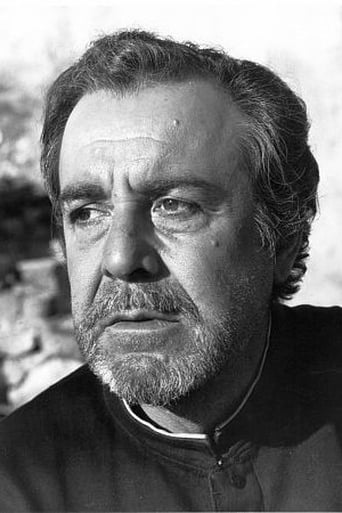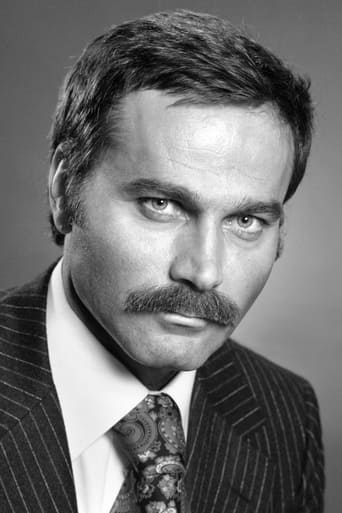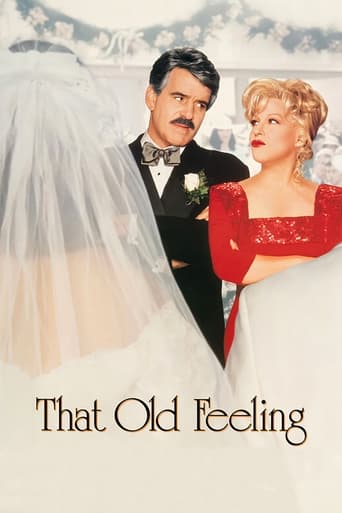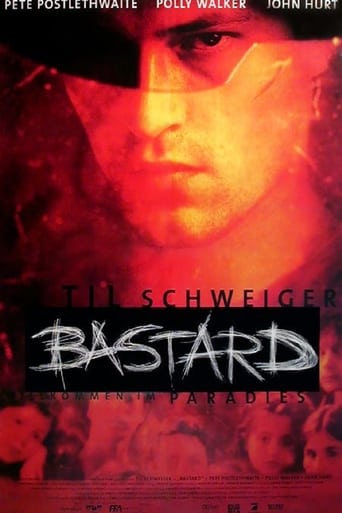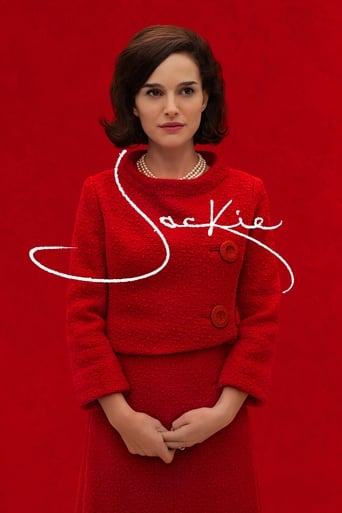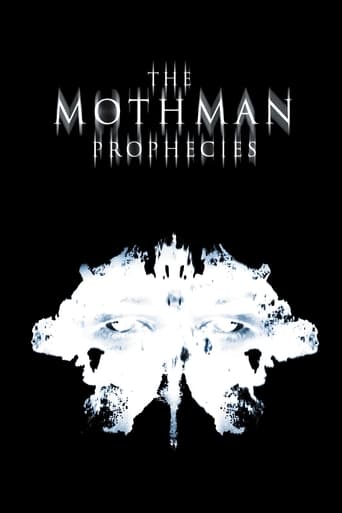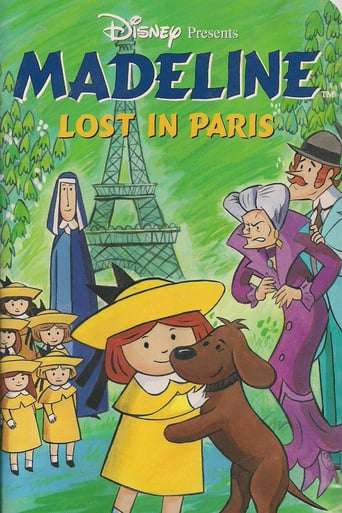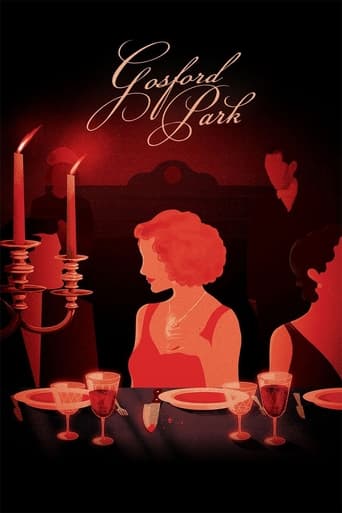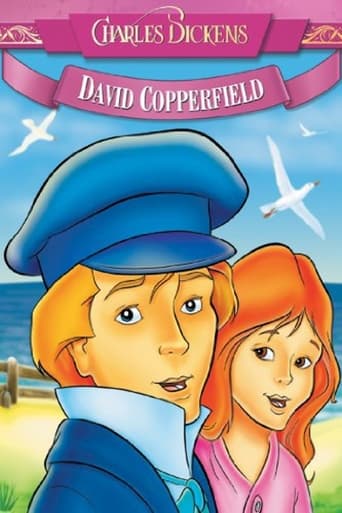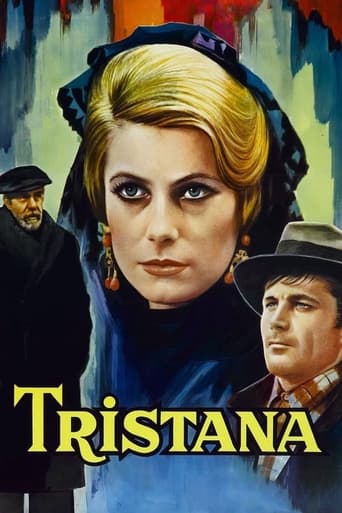
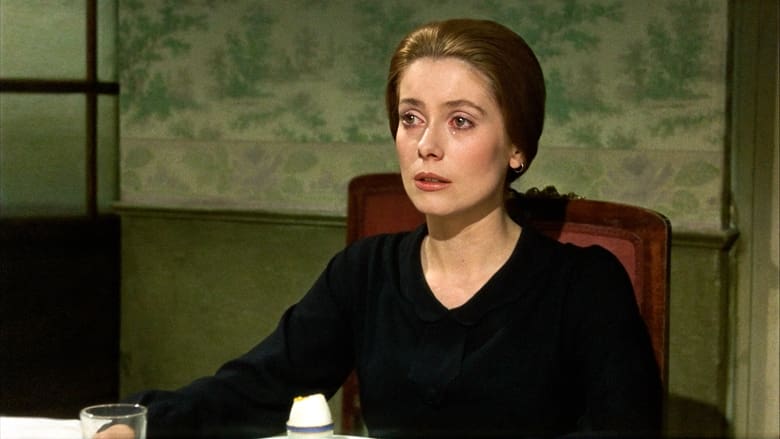
Tristana (2013)
As a young woman, Tristana is orphaned and taken under the guardianship of Don Lope, a respected member of the community, who takes advantage of his innocent charge. When Tristana falls in love with artist Horacio, she must learn to be more assertive in order to achieve independence from her nefarious guardian, or her blossoming relationship with Horatio is doomed.
Watch Trailer
Cast


Similar titles
Reviews
Tristana is a bit of an odd duck in the Luis Buñuel filmography. While the plot feels right up his alley (respected aging aristocrat seduces his ward, leading to conflict when she falls in love with a younger man) there were times were I was wondering if I was really watching a Buñuel film. The director's trademark surrealism is largely absent here aside from a brief dream sequence. All in all, it's solid enough, but not really one of Buñuel's best.In many respects, and rather unusually for Buñuel, this is an actor's film. Fernando Rey and Catherine Deneuve are both exceptional as the aging Don Lope and his ward Tristana, respectively. Rey's performance in particular is one of his finest. His character is probably the highlight of the film, he's very multifaceted and doesn't fall into the typical stereotypes that Buñuel uses to portray bourgeoisie characters. The third main lead, Franco Nero of Django fame, is a bit stiff here but he's not on screen very much compared to the other two leads. Finally, Lola Gaos heads the supporting cast and does a terrific job as Don Lope's housemaid Saturna.Because this is such an actor's film, Buñuel's direction is a bit flat for the most part. He gets a bit creative at the beginning and end of the film but he's a nonentity for the middle portion of the film, which drags on a bit as a result. Aside from the use of snow towards the end, the film isn't much to look at and the cinematography is a little flat at times. The sound design is also rather spartan, there's no score and not much to listen to aside from the dialogue. The effects used to convey one character having their leg amputated are well done however, and the costumes and sets feel very authentic and one never gets the sense that the sense that this historical drama feels staged.In conclusion, the film is definitely worth seeing for Rey and Deneuve's performances but this isn't the first Buñuel I'd show someone who's never seen a film of his as while it is more accessible, it lacks his usual distinctive style and in general isn't one of his stronger works.
One of the great movies of the early '70s. Catherine Deneuve is the title character, left in the care of older Fernando Rey, an aristocrat fallen on hard times. Rey is a staunch socialist and unabashed liberal willing to give all to those less fortunate while being a cruel misogynist who lets his lurid intentions known to the innocent Deneuve and makes no apology for it. When Deneuve leaves him for young artist Franco Nero, Rey, true to character, berates her and challenges Nero to a duel! Bunuel's jarring film exposes the cruelties men and women lob at each other while at the same time appearing to be genuinely kind to the disenfranchised. It's a truly unsettling film with a mid-film twist that is particularly shocking. The acting is brilliant. Rey is more than just dependable. He embodies the old guard, an honorable man who scoffs at authority and power as he defends those with even less than himself. Deneuve solidifies her her status as not only one of the screen's great beauties, but a fine actress willing to use her looks to play not only flighty or distressed waifs, but really cruel characters as well (as Tristana becomes after fate hands her a horrifying blow).
One of the latest works from the genius of Calanda, he was still stigmatized by Franco's dictatorship and he adapted a text by Benito Pérez Galdós about a young pretty girl (Catherine Deneuve) whose mother dies and has to go to live (and something else) with his stepfather (Fernando Rey)."Tristana" contains many of the common factors of Buñuel's movies: his total contempt for the ruling sectors of society and the rich people, for hypocrisy and Puritanism; his irreverence, and a wicked and implicit sexual content. Only the man who made "Belle de Jour" would dare to amputate a leg to the goddess Deneuve (one of the most beautiful creatures that ever walked the earth). Fernando Rey plays a typical Spanish "hidalgo" that's come down in the world and that sexually harass his stepdaughter.So, Buñuel not only hadn't lost his touch with the years, on the contrary, he felt more and more free as the time went by to let his genius flow *My rate: 8/10
I can't say I know Luis Bunuel's style well, since I've not seen many of his works, and those that I've seen usually just struck me as blah. But then yesterday I saw Tristana which starred Catherine Deneuve and was awe-struck by it. See, the comments that I've read online about it have seem to have the focus all wrong, they are more interested in commenting on Bunuel's usual attack on the bourgeois and catholicism. Yes it is dark and in some places rather surreal, but above all, Tristana is a simple and sad story about its characters as they grapple with life, love, loss and regret. It is especially well-crafted with its sinewed study of human relationships, and humans that desperately try to relate with each other.Tristana, played brilliantly by Catherine Denueve, is the central character whom we see evolve from an innocent young girl with her many ideals about love and relationship, to a bitter and cynical woman at the film's end who cannot believe in anything any longer. It is with special finesse that Deneuve plays her, that we witness, with heartbreak, every turn of her back on the things she love, and every rejection of all morality that she held before.Fernando Rey's character is probably the murkiest but ultimately most empathetic character, as at the end of the film, age wears off his hard-edged cynicism and turns him into the loving father figure that Tristana desperately needed in the beginning of the film. In a sense, it is a film about age, how when we reach a certain point in our lives we see things much clearer and as it is, rather than try to twist things to our advantage. The way Rey's character treasures the time with the vile and vindictive Tristana at the end of the film is not only overwhelmingly sad, but also an epiphany by an auteur who is gaining age himself.In spite of all its dramatic turns of events, Tristana is not an emotional and angsty film in its portrayal of its characters' lives. Instead it is a soft and peaceful film that sympathetically accepts its characters' flaws as much as it forgives them. It is a film that evokes the intricate feeling of looking back in our dark and troubled past and finding the exquisite moments of happiness amidst all the cynicism and grit. When, towards the end, Rey reaches the peace that he has been struggling so hard to attain throughout the film, he notes, 'It's snowing so hard outside, but in this house, I'm nice and warm. What's there not to be happy about?'. A silent recognition that peace is not bending reality to your own will, but merely, acceptance.



